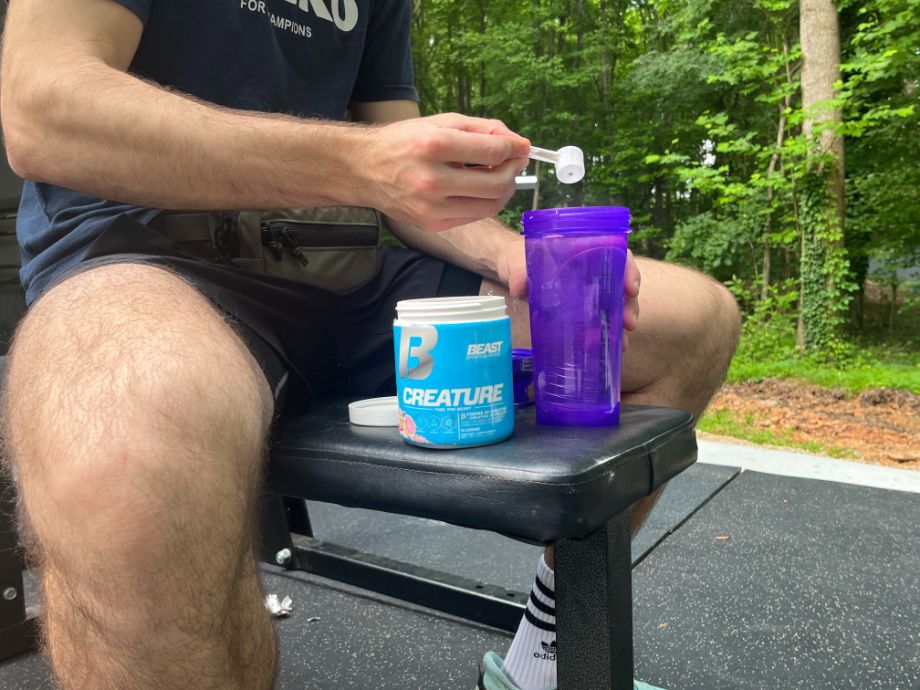We test and review fitness products based on an independent, multi-point methodology. If you use our links to purchase something, we may earn a commission. Read our disclosures.
Pretty much anyone who regularly does resistance training has heard about creatine benefits such as muscle building and enhanced exercise performance. But the question today is: does this multi-purpose supplement boost testosterone, which is largely responsible for the anabolic effects that result in strength and more favorable body composition?
Testosterone boosters (or supposed testosterone boosters) like DHA, ashwagandha, boron, and fenugreek extract are highly sought after by lifters in need of those androgen functions. So, can creatine hang with this group?
RELATED: Best Ashwagandha Supplement
I—a sports nutrition expert—am here to break down the claims and science behind the relationship between creatine and your hormone levels to answer the question: Does creatine increase testosterone?
Medical disclaimer: This article is intended for educational and informational purposes only. It is not intended as a substitute for medical advice. For health advice, contact a licensed healthcare provider.
Can Creatine Increase Testosterone Levels?
The short answer is: not really. Many people who engage in resistance exercise believe that weeks of creatine monohydrate supplementation affects dihydrotestosterone, or DHT, which is converted from testosterone and is responsible for its androgen effects. This belief is largely due to a 2009 study conducted on college-aged rugby players who saw a boost in dihydrotestosterone1 following three weeks of creatine use.
The placebo-controlled study had 20 athletes load 25 grams of creatine for 7 days, followed by a maintenance dose of 5 grams for 14 days. The athletes saw a 56% increase in DHT during the loading, followed by a 40% increase in testosterone levels during maintenance.
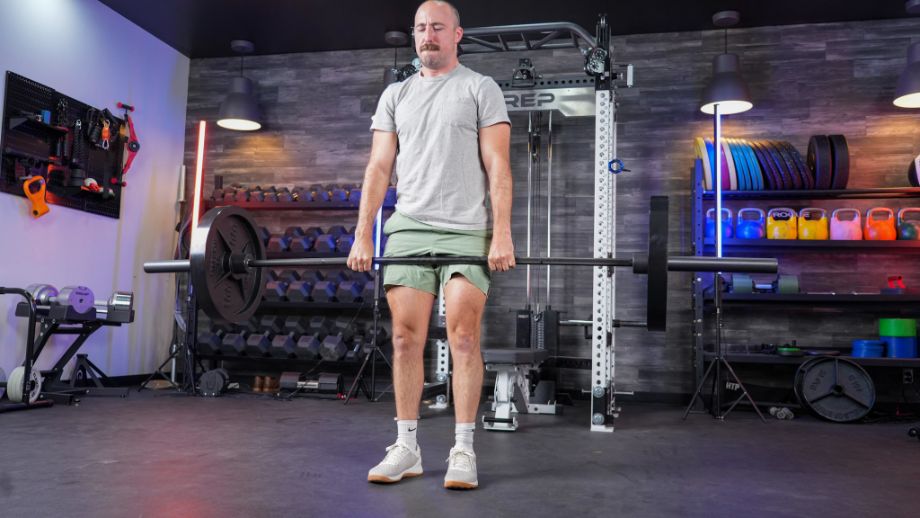
While this news might seem like a dream come true for bodybuilders, it’s not the groundbreaking finding of sports nutrition that it seems. While no one has been able to explain why the subjects experienced this increase in testosterone levels, there have been multiple studies that have also shown creatine has no influence on hormone levels. (See European Journal of Applied Physiology2, Medicine and Science in Sports Exercise3, and International Journal of Sport Nutrition and Exercise Metabolism4.)
Basically, creatine isn’t one of those testosterone boosters some make it out to be, as there has not been any solid evidence since that it raises DHT. The study conducted on the college-aged rugby players also raised concerns that creatine can cause hair loss, as DHT has been associated with this effect. Despite this, the study did not measure hair loss itself. Instead, it measured a hormone that is often linked to hair loss, but no science has been able to reproduce these results.
RELATED: Does Creatine Cause Hair Loss?
Creatine helps ramp up resistance exercise to help you push yourself in the gym, which can indirectly boost testosterone. However, creatine alone does not appear to have an influence on free testosterone levels.
What is Creatine?
Creatine is a natural compound the human body makes by combining the amino acids glycine, arginine, and methionine. However, it’s also sold in supplement form, most commonly as creatine monohydrate.
RELATED: Best Creatine
Creatine is widely recognized for its ability to assist in the production of ATP, or adenosine triphosphate, the body’s unit of energy. Adenosine triphosphate is converted by muscle cells into diphosphate or ADP by removing a phosphate molecule. In order to create more energy, ADP must become ATP again to prevent fatigue, which adversely affects your physical performance.
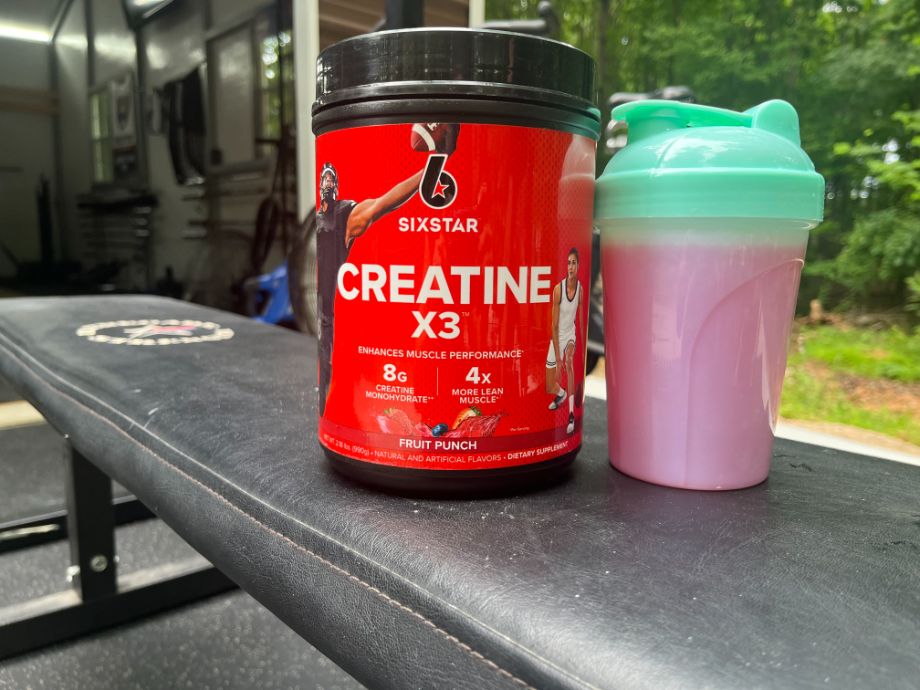
Muscle creatine can be converted into phosphocreatine when there are high enough concentrations of the compound in the skeletal muscle. Phosphocreatine is essentially creatine with phosphate attached, which means it can donate a phosphate molecule to ADP in order to make ATP again, which allows one to perform intense exercise for longer5.
In addition to this function, creatine may also support muscle growth, boost athletic performance, gain lean muscle, and provide better recovery from physical activity.
Types of Creatine
There are quite a few types of creatine available, but we’ll focus on the most popular ones here.
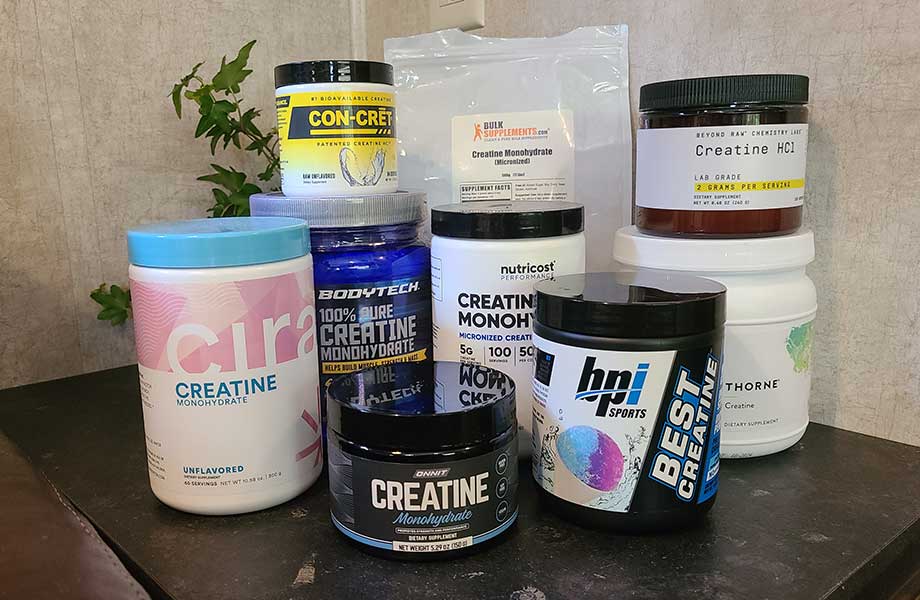
Creatine HCl
This is a form of creatine bonded to hydrochloric acid, which endorsers of creatine HCL claim promotes better uptake of creatine into the skeletal muscle. This is due to a study that shows creatine is more water-soluble, 38 times more soluble than creatine monohydrate6, in fact. Due to this, some claim you can take less creatine HCl than monohydrate and get the same results. However, there are no human trials that support this claim.
Creatine Citrate and Creatine Malate
Both are commercially available, alternative forms of creatine. However, no studies have shown they work any differently than creatine monohydrate.
RELATED: Types of Creatine
Creatine Ethyl Ester
There has been some research that this type is more bioavailable than other common types of creatine, but one placebo-controlled study7 showed that it worked about as well as the placebo. In other words, it does basically nothing. That’s because it converts to creatinine almost immediately after consumption and creatinine has basically no performance or health benefits.
Creatine Nitrate
Many athletes are familiar with the performance and health benefits of nitrates, which have been shown to help dilate the arteries, which can help with both healthier heart function and better oxygen transport. More efficient oxygen transport can translate into better exercise performance8, which is why elite and endurance athletes supplement with things like beet juice, which are rich in nitrates.
Despite this perfectly valid logic, however, studies that compared creatine nitrate to monohydrate saw that they performed about the same9 in terms of exercise performance.
Creatine Monohydrate
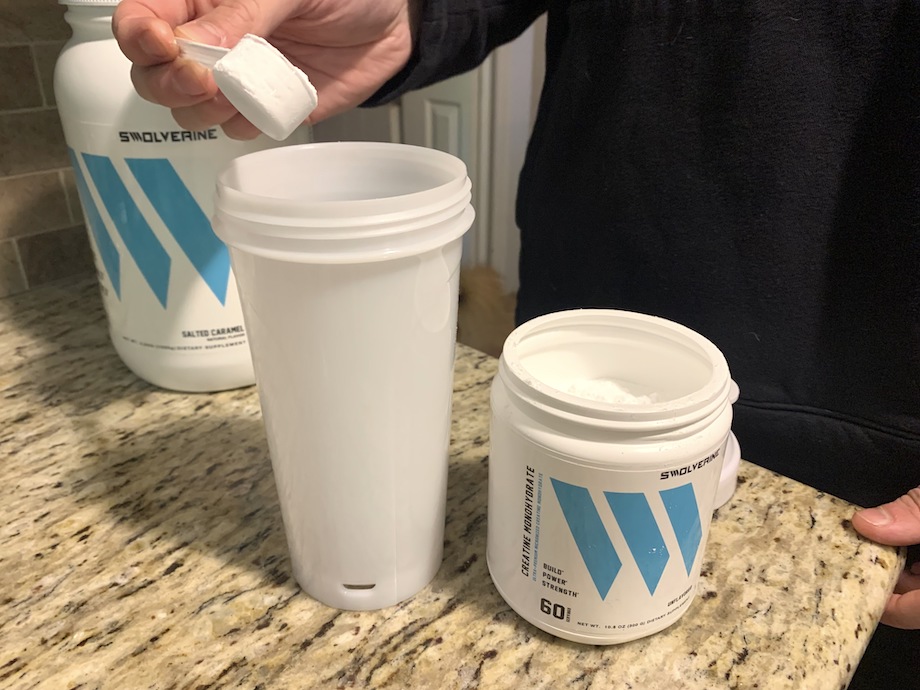
The most common form of creatine supplement, as well as the most researched, creatine monohydrate appears to be similar or superior to every other form of creatine in terms of tolerance, safety and function10.
One recent review11 also showed that, out of all commercially available types of creatine, creatine monohydrate is the most affordable by far. As I’m sure you understand by now, creatine monohydrate is generally the most practical type of creatine you can take.
RELATED: How to Take Creatine
Benefits of Creatine
There are three key creatine benefits for fitness-minded folks that I wish to highlight.
May Help Support Building Lean Body Mass
One of the main selling points of creatine supplements is its much-studied ability to change body composition by supporting anabolic function in muscle mass. Creatine has consistently been shown to support muscle building when combined with resistance exercise2, which is most likely why people believe it boosts testosterone production.
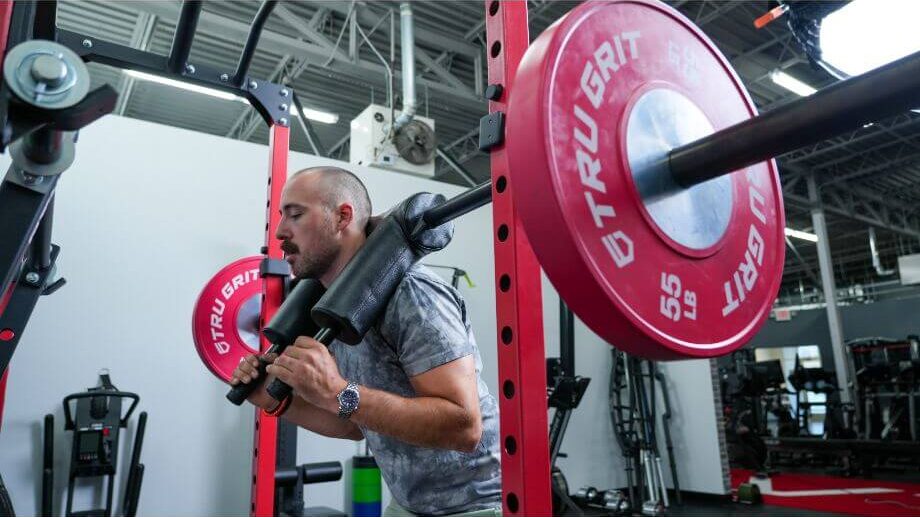
May Help Improve Muscle Recovery
It’s thought that creatine boosts muscle recovery and reduces soreness by generating more energy in muscle cells2. This can allow you to keep engaging in high-intensity exercise even when your muscles are sore, which helps one keep their muscle strength and support performance.
RELATED: Best Muscle Recovery Supplements
May Help Prevent Muscle Mass Breakdown
Creatine has been shown to be effective at battling the exercise-induced inflammation that can cause muscular damage and loss of muscle tissue, which can adversely affect body composition and performance. This effect is particularly useful for injured athletes who can’t train and thus will have much lower rates of protein synthesis than they are used to.
Among otherwise healthy individuals who undergo upper arm immobilization for an extended period, creatine supplementation appears to minimize muscle loss and enhance strength, according to one 2022 study5.
Side Effects of Creatine
Now that I’ve covered the benefits, let’s even it out with the potential creatine side effects.
Bloating and Water Retention
It’s thought that creatine can stimulate muscle protein synthesis by drawing water into muscle cells. When people are in the creatine-loading phase or new to creatine use, they experience the greatest increase in intramuscular water, which can also manifest as bloating. However, this is only a short-term effect and will pass as your body adjusts to the creatine supplementation.
RELATED: How Much Water Should You Drink with Creatine?
Temporary Weight Gain
Along with this water gain and increase in protein synthesis, you may see an appreciable increase in body mass. This weight gain is unlikely to be fat, so don’t freak out. Studies have even shown that creatine can help reduce body fat5, so the sudden upsurge in body mass can be chalked up to either water retention or muscle growth.
RELATED: Does Creatine Make You Gain Weight?
How to Dose Creatine
The well-established dose that seems the most effective for creatine supplementation is 3 to 5 grams, with 5 grams being likely the most effective dose12. To maximize creatine concentrations in the muscle, taking it daily is the best course of action, even on rest days.
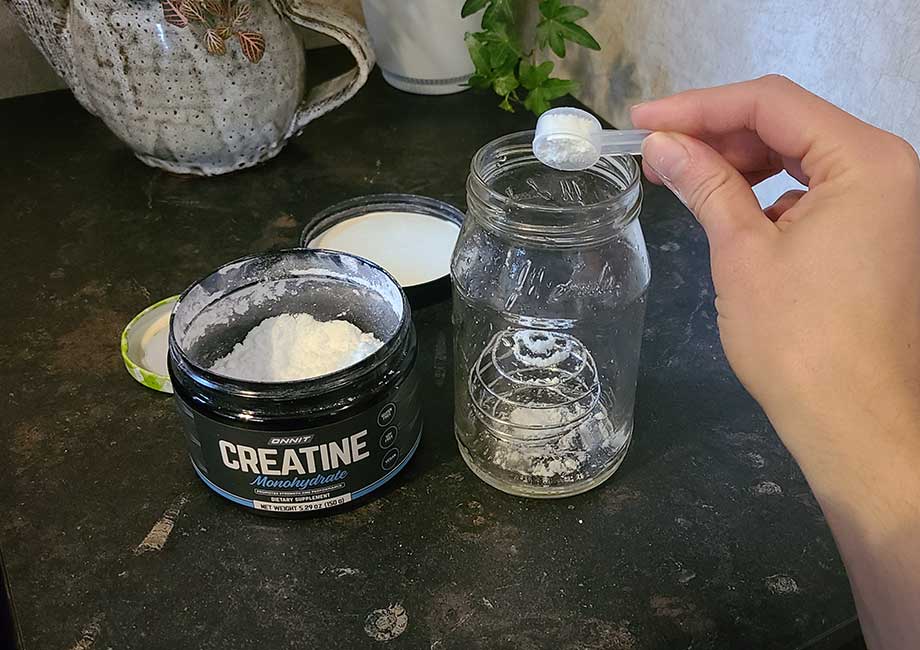
Some people choose to engage in a practice called creatine loading, which involves taking 20 grams of creatine for 5 to 7 days before proceeding with the maintenance dose of 5 grams. By doing this, loaders claim you can see effects of creatine supplementation sooner. However, science doesn’t entirely endorse this as truth.
Loading has been shown, however, to give short-term benefits in athletic performance. That said, the effect on building muscle, muscle strength, and muscle recovery appear to be the same when taking creatine long-term whether you load or not5.
RELATED: What is a Creatine Cycle?
Does Creatine Increase Testosterone? Final Thoughts
Given that creatine is synthesized by the body naturally from amino acids, it would make sense that it can’t make a significant increase in testosterone production. For this to be true, it would mean that any diet rich in red meat or supplement containing the same amino acids would have the same effect.
Studies have shown that high-intensity physical activity can naturally boost testosterone13 as the body releases androgen compounds to support building muscle in order to adapt to the exercise. Since creatine has been shown to improve exercise performance, it can indirectly influence free testosterone, but it’s far from a TRT treatment. If you want to influence this hormone, you need to do what you are likely already doing: adhere to a balanced, high-protein diet and train regularly.
RELATED: Best Pre-Workout
If you have low testosterone, it would be a good idea to consult your doctor to see if you have underlying conditions or if you are a candidate for TRT treatment. Please do not turn to sports nutrition supplements, as disrupted hormone levels can have serious medical consequences.
Does Creatine Increase Testosterone? FAQs
Does creatine increase testosterone levels?
No, creatine does not directly influence free testosterone production in the body. However, it can help influence better performance during resistance training and intense resistance training can naturally boost testosterone levels.
Does creatine affect sperm?
Researchers have proposed a link between creatine supplementation and improved sperm motility in men with low sperm counts. These findings must, however, be confirmed by further research.
What supplements increase testosterone?
DHEA is one supplement that may increase testosterone in older men14.
These statements have not been evaluated by the Food and Drug Administration. This product is not intended to diagnose, treat, cure, or prevent any diseases.
References
- van der Merwe J, Brooks NE, Myburgh KH. Three weeks of creatine monohydrate supplementation affects dihydrotestosterone to testosterone ratio in college-aged rugby players. Clin J Sport Med. 2009;19(5):399-404. doi:10.1097/JSM.0b013e3181b8b52f
- Volek JS, Ratamess NA, Rubin MR, et al. The effects of creatine supplementation on muscular performance and body composition responses to short-term resistance training overreaching. Eur J Appl Physiol. 2004;91(5-6):628-637. doi:10.1007/s00421-003-1031-z
- Eijnde BO, Hespel P. Short-term creatine supplementation does not alter the hormonal response to resistance training. Med Sci Sports Exerc. 2001;33(3):449-453. doi:10.1097/00005768-200103000-00018
- Crowe MJ, O’Connor DM, Lukins JE. The effects of beta-hydroxy-beta-methylbutyrate (HMB) and HMB/creatine supplementation on indices of health in highly trained athletes. Int J Sport Nutr Exerc Metab. 2003;13(2):184-197. doi:10.1123/ijsnem.13.2.184
- Wu SH, Chen KL, Hsu C, et al. Creatine Supplementation for Muscle Growth: A Scoping Review of Randomized Clinical Trials from 2012 to 2021. Nutrients. 2022;14(6):1255. Published 2022 Mar 16. doi:10.3390/nu14061255
- Brandon T. Gufford, Kamaraj Sriraghavan, Nicholas J. Miller, Donald W. Miller, Xiaochen Gu, Jonathan L. Vennerstrom & Dennis H. Robinson (2010) Physicochemical Characterization of Creatine N-Methylguanidinium Salts, Journal of Dietary Supplements, 7:3, 240-252, DOI: 10.3109/19390211.2010.491507
- Spillane M, Schoch R, Cooke M, et al. The effects of creatine ethyl ester supplementation combined with heavy resistance training on body composition, muscle performance, and serum and muscle creatine levels. J Int Soc Sports Nutr. 2009;6:6. Published 2009 Feb 19. doi:10.1186/1550-2783-6-6
- Macuh M, Knap B. Effects of Nitrate Supplementation on Exercise Performance in Humans: A Narrative Review. Nutrients. 2021;13(9):3183. Published 2021 Sep 13. doi:10.3390/nu13093183
- Galvan E, Walker DK, Simbo SY, et al. Acute and chronic safety and efficacy of dose dependent creatine nitrate supplementation and exercise performance. J Int Soc Sports Nutr. 2016;13:12. Published 2016 Mar 31. doi:10.1186/s12970-016-0124-0
- Wax B, Kerksick CM, Jagim AR, Mayo JJ, Lyons BC, Kreider RB. Creatine for Exercise and Sports Performance, with Recovery Considerations for Healthy Populations. Nutrients. 2021;13(6):1915. Published 2021 Jun 2. doi:10.3390/nu13061915
- Fazio C, Elder CL, Harris MM. Efficacy of Alternative Forms of Creatine Supplementation on Improving Performance and Body Composition in Healthy Subjects: A Systematic Review. J Strength Cond Res. 2022;36(9):2663-2670. doi:10.1519/JSC.0000000000003873
- Naderi A, de Oliveira EP, Ziegenfuss TN, Willems MT. Timing, Optimal Dose and Intake Duration of Dietary Supplements with Evidence-Based Use in Sports Nutrition. J Exerc Nutrition Biochem. 2016;20(4):1-12. doi:10.20463/jenb.2016.0031
- Riachy R, McKinney K, Tuvdendorj DR. Various Factors May Modulate the Effect of Exercise on Testosterone Levels in Men. J Funct Morphol Kinesiol. 2020;5(4):81. Published 2020 Nov 7. doi:10.3390/jfmk5040081
- Liu TC, Lin CH, Huang CY, Ivy JL, Kuo CH. Effect of acute DHEA administration on free testosterone in middle-aged and young men following high-intensity interval training. Eur J Appl Physiol. 2013 Jul;113(7):1783-92. doi: 10.1007/s00421-013-2607-x. Epub 2013 Feb 17. PMID: 23417481.
Further reading

We’ve personally tested and used the best commercial ellipticals on the market to give you our top choices. Read more

Is this the best home stair climber on the market? Find out in our STEPR review! Read more

The Sorinex Base Camp Squat Rackis, put simply, one of the best squat rackswe've ever tested. Combining exhaustive attention to the details, endless customization, incredible build quality, and an indescribable "cool" factor, the Sorinex Base Camp Squat Rack and Uber Package is quite possibly the best squat rack being made today. Read more

Our Joggo review covers both the good and the bad of this running app targeted toward beginners. Read more

